

Amid the peaks and valleys of Val d’Aran, women wove life with nimble hands, wise words and silent fortitude.
This trail honours their traditional crafts: spinning, healing, kneading, caring. Tasks that were unseen, but essential. At every step, you will discover the legacy of those who kept the valley alive. After all, the roots and history of this land reside in their everyday activities.
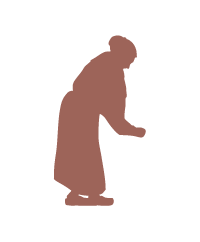
1. Washer woman
Laundry day. An essential and invisible chore reserved for women. And carried out in winter, because in summer there was too much work and not enough time. At home, hot water and ash. At the washing place, freezing cold water and soap.
A single day of celebration would showcase our work. Whether it was the Town Festival or the Feast of the Assumption in August. On the other days of the year, it went unnoticed, but on a holiday it was essential.
As women, we were in charge of keeping the home tidy and clean. For us, washing places have served as work spaces, but also as places of community. While cleaning, we bonded with the local women around us. It was this way and here that we have listened and been heard.
“Cleaning the house was like cleaning the soul: it was done every day, quietly, with effort, and with no expectation of reward”. Dolores Medio, Asturian writer.
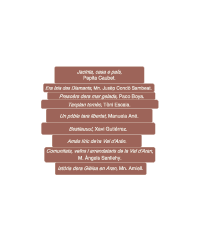
2. Teacher
One simply is a teacher. It is a vocation. Yet in the past, it was a job exclusively reserved for men, as they were the only ones with access to education. Our role was to educate inside the home, passing on knowledge and values, explaining and setting an example. Helping our children to grow up.
Fortunately, society changed, we gained access to education and were finally able to teach.
“Every unnecessary help is an obstacle to development”. Maria Montessori, Italian educator.
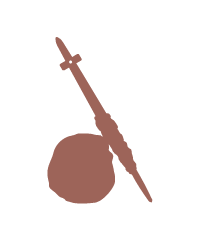
3. Spinner
It was the pride of the women spinners to perform a somewhat magical task: to transform the wool from the sheep into thread, and the thread into warm clothes.
A wonderful art using a product of Mother Nature, wool, and the control of Father Time, patience. A process that can still be seen today in places like the Fabrica dera Lan, in Vielha.
Thanks to our skilled hands, we, the spinners, protected the people of the valley during the winter.
“Spinning, like living, takes patience, and each thread is a morsel of time”. María Zambrano, philosopher from Malaga..

4. Peasant farmer
In spring, the task was about working and waiting. In summer, it was about harvesting, whether grain or flax, and preparing the home. In autumn, it was about preparing conserves and cured meats. And in winter, the work went on inside the house.
It is said that not everyone can endure uncertainty and continue to work every day. It is said that subsistence farming is only practised by those capable of surviving in the harshest conditions. It is said that we women, who always manage to get back on our feet, are the backbone of our households.
“Nature is inexhaustibly sustainable if we care for it. It is our universal responsibility to pass a healthy earth onto future generations”. Sylvia Dolson, Canadian naturalist.

5. Shepherdess
A person belonged to a family, to a home. Their actions and decisions had a collective repercussion. Like sheep that had to follow the flock.
In homes, they looked out for the wellbeing of the people, and also for that of the animals. Livestock was the cornerstone of the economy and it was important to look after it. In both the home and the village, women were and continue to play a key role in ensuring the health and safety of the livestock.
“Caring is an ancestral art, profoundly human and profoundly feminine, that is learned by watching the way other women silently love”. Marcela Lagarde, Mexican anthropologist.
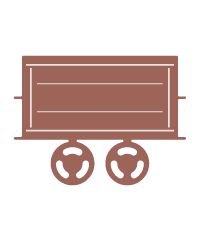
6. Mineral sorter
Inside the mine, there is no silence; every sound gets a reply. Inside the mine there is darkness, but luckily, there is light outside. In the mine, each task leads to another. And ours, that of the women, was the last task of all. We worked in the stamp mills of Es Calhaus, Bossòst and Pontaut, sorting the minerals and removing the impurities.
Because in the mine, every hand counts.
“We ourselves feel that what we are doing is just a drop in the ocean. But the ocean would be less because of that missing drop”. Mother Teresa of Calcutta, Nobel Peace Prize Laureate, 1979.
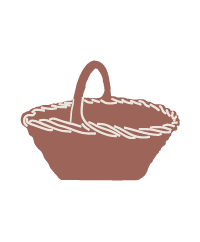
7. Healer
We were there. We used to cure illnesses with our remedies made of medicinal herbs that were collected in the meadows and dried in the attics of the houses. We acted as midwives and helped mothers to give birth, to create the future.
We passed our knowledge down from generation to generation.
We are and we will be; with all that remains of an ancestral knowledge learned from the earth and from wise women.
“People will forget what you said and what you did. But they will never forget how you made them feel”. Maya Angelou, North American civil rights activist.
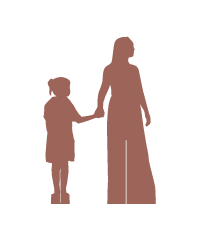
8. Mother
The mountains would be here. The cold of the winter and the summer sun, the frost, the song of the birds in the spring… they would also be here.
The valley would be here.
But without mothers, the heart of this country would not beat.
“Motherhood is not only about giving life. It is also about learning to look after it, teaching it to grow and sometimes allowing it to fly”. Frida Kahlo, Mexican painter.








